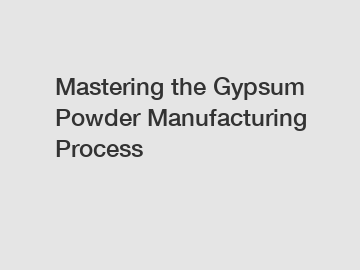Key Questions to Consider When Selecting a Portable Air Purifier
Choosing the right portable air purifier can significantly enhance your indoor air quality, whether at home, in the office, or on the go. With a variety of models flooding the market, it's essential to ask the right questions before making a decision. Let's explore the key considerations that will guide you in selecting the perfect portable air purifier.
1. What is the Air Purifier’s CADR Rating?
The Clean Air Delivery Rate (CADR) is crucial in assessing an air purifier's effectiveness. It measures how quickly the device can remove specific contaminants from the air, such as dust, smoke, and pollen. Look for a unit with a high CADR rating, as this indicates better performance. For instance, a CADR rating of 150 CFM (cubic feet per minute) is ideal for medium to large rooms. Understanding CADR will help you select an air purifier that can sufficiently clean the air in your desired space.
2. What Type of Filters Are Used?
Filters play a vital role in the efficiency of any air purifier. There are mainly three types of filters:
- HEPA Filters: Best for capturing particles as small as 0.3 microns, including allergens like pet dander and dust mites.
- Activated Carbon Filters: Essential for removing odors and chemicals from the air. This is particularly useful in kitchens or areas where people smoke.
- Pre-Filters: These are often used to extend the life of the HEPA filter by trapping larger particles.
Determine what types of pollutants you need to address and ensure that the air purifier uses effective filters for those specific concerns.
3. What is the Purifier’s Size and Portability?
Portability is one of the main selling points of portable air purifiers. Consider the size and weight of the device. Is it easy to transport from room to room? Can it fit in your backpack for travel? A good portable air purifier should be lightweight and compact, allowing for easy relocation. Look for units with ergonomic handles or those specifically marketed for travel purposes.
4. How Much Noise Does it Produce?
Noise levels can affect your comfort, particularly in spaces like bedrooms or offices. Most air purifiers operate quietly, but models vary significantly in noise output. Check for the decibel (dB) levels, especially on the lowest setting. Aim for models that produce less than 30 dB if you value tranquility during sleep or work. Many air purifiers also feature silent modes which can be beneficial for nighttime use.
5. What is the Coverage Area?
The effectiveness of an air purifier greatly depends on the size of the area it can cover. Each model comes with a specified coverage area, measured in square feet. It is important to select a purifier that corresponds with your space—larger rooms might require more than one unit or a purifier with a higher coverage capability. Make sure to match the purifier with the dimensions of the space you wish to clean.
Further reading:How Does a 10g Ozone Generator Change With Time?
6. Is There a Smart Feature?
How Can Feed Pellet Grading Improve Animal Health and Nutrition?
Unlocking Efficiency: XPS Foam Board Machinery Insights
Is Your Seed Oil Extraction Machine Efficient Enough?
Exploring the 120TPD Steel Structure Flour Plant
2024 Guide to Maize Mill Turnkey Projects
What are the benefits of animal feed pellet mills?
In our connected age, smart features can enhance the user experience. Models with Wi-Fi connectivity allow for remote control via smartphone apps, enabling you to monitor air quality and adjust settings from anywhere. Features such as air quality indicators, automated settings based on pollution levels, and integration with home automation systems can heighten efficiency and convenience.
7. What is the Price Point and Maintenance Cost?
Price can be a critical factor, but don't fall for the lowest price tag. Consider the overall value—how efficient is the purifier? What’s the cost of replacement filters, and how often will you need to replace them? Some units may seem cheaper upfront but could incur higher maintenance costs over time. Assessing both the initial investment and ongoing costs will provide a clearer picture of the total financial commitment involved.
8. What Do Reviews and Ratings Say?
Customer reviews provide invaluable insights. Look for patterns in the feedback, focusing on both what users love and what problems they've encountered. Go beyond product descriptions to platforms such as Amazon, Best Buy, or specialized review sites. Consider the experiences of different users in similar environments to yours to gauge the air purifier's effectiveness.
9. Is There a Warranty Offered?
A reliable warranty can provide peace of mind. It shows that the manufacturer stands behind their product. Check the duration and terms of the warranty before making a purchase, as this can signal the quality and durability of the unit. A warranty can also ease concerns about potential issues that could arise after your purchase.
10. How Eco-Friendly is the Model?
In today’s environmentally conscious world, consider the eco-friendliness of the air purifier. Look for energy-efficient models that use less power and are constructed from sustainable materials. Some brands also offer recyclable filters, reducing waste in landfills. Eco-friendly options can be beneficial for both your health and the planet.
By addressing these critical questions, you can make a more informed choice when selecting a portable air purifier that meets your needs and enhances your indoor air quality. The right device not only ensures a healthier living environment but also promotes overall well-being, making it a valuable investment for your space.
For more 10g ozone generator, car ozonizer supplier, shrimp farm ozone generator supplierinformation, please contact us. We will provide professional answers.
Further reading:Top Tips to Buy Commercial Brewery Equipment Wisely
What are the benefits of Wheat Flour Grinding Machines?
Top Gypsum Board Equipment Trends for 2024
Maximize Efficiency with Low NOx Hot Oil Boilers
What to Consider When Choosing a Seed Crusher?
Why invest in maize mills for efficient production?
Top Trends in Feed Manufacturing Equipment 2024
- 0










